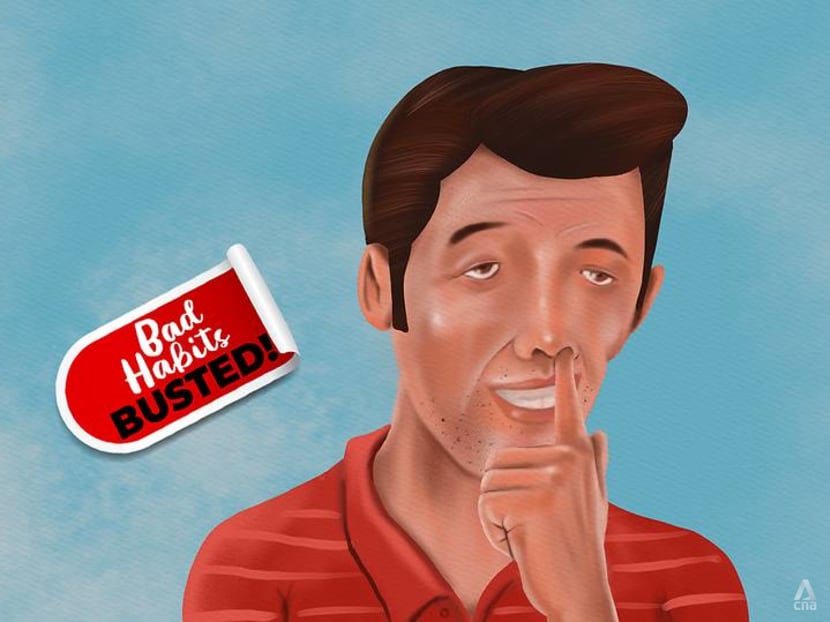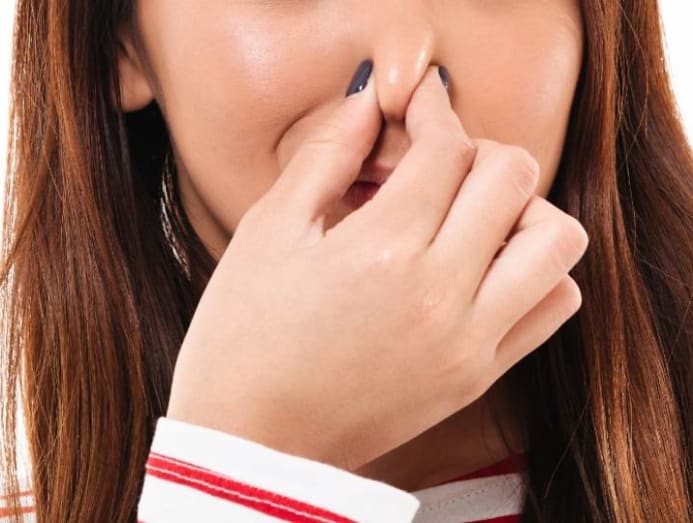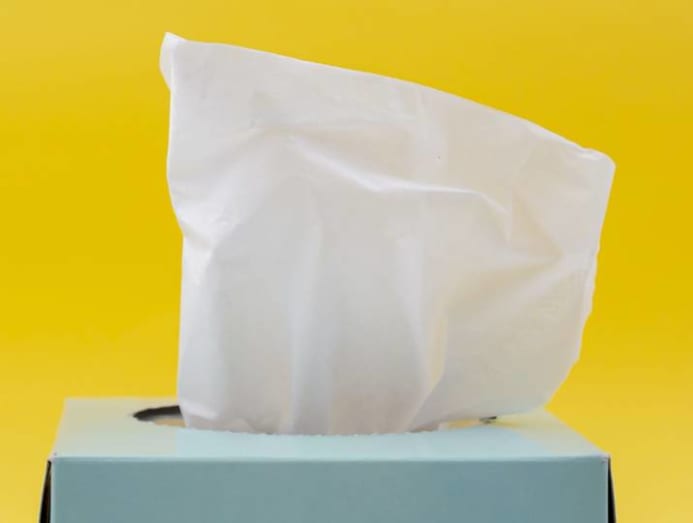How frequent nose picking can enlarge nostrils and introduce more bacteria
In this new series, CNA Lifestyle asks the experts for their thoughts on common bad habits. This week, we look at a very universal one: Nose picking.

(Art: Jasper Loh)
You don’t need research to tell you how gratifying it feels to indulge in this particular habit (yeah, sure, deny all you want). But if you must know, nose picking is so common that one survey of 254 adults found that 91 per cent do it – and 1.2 per cent do so at least every hour.
So yes, people – not just kids – do habitually pick their noses out of boredom or nervousness.
The obvious excuse is that it’s all in the name of removing those pesky boogers, which, in and of itself actually have an important function.
“The nasal lining produces mucus to help clear particles in the air that a person breathes in. Boogers are dried mucus that has collected these particles,” said Dr Tan Teck Shi, the clinical lead for a respiratory workgroup run by SingHealth Polyclinics.
READ: Love wearing that mask on your arm or under your chin? You’re spreading germs
“Dusty areas or a hazy environment might cause more dust or dirt particles to be trapped by our nasal lining, resulting in more boogers.”
WHAT’S THE DAMAGE?
But there are also some risks when “cleaning” one’s nostrils. Because “blood vessels on the lower part of the septum are very superficial”, picking your nose can actually rub the nasal debris against the delicate nasal lining and sometimes cause bleeding, warned Dr Tan. The septum is the cartilage in the nose that separates the nostrils.
“Although reports of septum perforation in severely affected patients are rare, constant nose picking can cause chronic infection, inflammation, and thickening of the nasal passages, thereby increasing the size of the nostrils,” he said.
Yes, you read that right – constant picking can enlarge those nose holes.

“Pinching your nose is unlikely to help in minimising the nostril enlargement,” said Dr Tan. “On the contrary, it may attribute to the enlargement as it causes more damage and hence, inflammation through pinching.”
That’s not all. There is a higher chance of you picking up germs with your fingers and delivering them straight into your nose. During the pandemic, you certainly don't want to risk introducing the COVID-19 virus into your body.
Not just COVID-19, staphylococcus aureus, a type of bacteria that commonly causes skin infections, is more likely found in the nostrils of nose pickers in a 2006 Dutch study.
HOW CAN YOU STOP THE HABIT?
Picking one’s nose is something many of us do without even thinking about it – but just Dr Tan also pointed out that there’s a possibility that the habit could also be caused by a psychological disorder such as rhinotillexomania or compulsive nose picking.
“Rhinotillexomania may be diagnosed if a person continues to nose-pick even when the boogers are removed. This is classified under obsessive-compulsive disorders, which include skin picking, hair pulling and nail biting,” he said.
Whatever prompts you to start picking your nose, Dr Tan recommended some tips to reduce the habit.

If stress or anxiety is the cause behind your nose picking, try muscle relaxation or deep breathing exercises, he said.
What about situations when you really need to clear out your nostrils? “Blow your nose gently with clean tissues and wash your hands immediately thereafter,” said Dr Tan, especially if a cold or allergy has increased your secretion of mucus and the resulting boogers.
“To minimise mucus production, you can use a humidifier or air purifier. Allergies can also be treated with steroid sprays and antihistamines.”
However, if you persistently see blood in your boogers, it might be a sign of something more serious, and you should consider consulting a doctor, said Dr Tan. “Similarly, seek medical help if there is persistent nose irritation, abnormal discharge and bleeding, obstruction, pain or swelling in the nostrils.”





